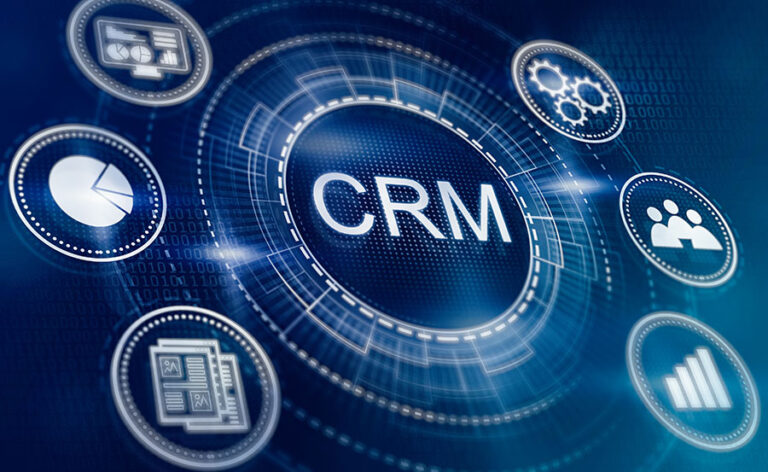Who Benefits from CRM / Customer Relationship Management Systems?
A CRM system is designed to benefit individuals across various departments, including sales, customer service, business development, recruiting, marketing, and more. It provides a comprehensive solution for managing external interactions and relationships that are crucial for achieving success. By using a CRM tool, you can store contact information of customers and prospects, identify sales opportunities, track service issues, and execute marketing campaigns, all within a centralized platform. This allows for easy access to customer data and enables anyone in your company to retrieve relevant information whenever needed.
The advantages of CRM extend beyond data organization. With enhanced visibility and streamlined access to customer information, collaboration among teams becomes more seamless, leading to increased productivity. By having a holistic view of customer interactions, your entire company gains insights into communication history, past purchases, payment records, and more. This valuable knowledge empowers companies of all sizes to drive business growth. In particular, small businesses can greatly benefit from CRM systems as they enable teams to accomplish more with limited resources.

The Importance of CRM for Your Business:
According to Gartner, CRM is projected to become the largest area of spending in enterprise software by 2021. To ensure the longevity of your business, it is crucial to have a forward-thinking strategy in place. You set sales targets, define business objectives, and strive for profitability. However, obtaining accurate and up-to-date information on your progress can be challenging. How can you effectively translate the multitude of data streams from sales, customer service, marketing, and social media monitoring into actionable business insights?
This is where a CRM system becomes invaluable. It provides you with a comprehensive overview of your customers, consolidating all relevant information in one place. Through a user-friendly and customizable dashboard, you can easily access a customer’s history with your company, check the status of their orders, address any outstanding customer service issues, and more.
Moreover, CRM systems enable you to incorporate data from your customers’ public social media activities. This includes their preferences, opinions, and mentions about your brand or competitors. Marketers can leverage CRM solutions to gain a better understanding of the sales pipeline and accurately forecast future trends. By having clear visibility of every opportunity and lead, you can track the entire journey from initial inquiries to successful sales. Furthermore, the true productivity gains are realized when CRM goes beyond its traditional role as a sales and marketing tool and becomes embedded throughout your entire business, from HR to customer services and supply-chain management.
While CRM systems have historically been associated with sales and marketing functions, customer service teams are discovering immense benefits in utilizing them. Today’s customers often initiate inquiries or raise issues across multiple channels, such as social media, email, or telephone. With a CRM platform, you can seamlessly manage and track these interactions across channels, ensuring a consistent and personalized customer experience. It provides sales, service, and marketing teams with a unified view of each customer, fostering effective collaboration and informed decision-making.
In summary, CRM plays a vital role in driving business success. By implementing a CRM system, you gain a comprehensive understanding of your customers, enhance forecasting accuracy, and improve productivity across various departments. It enables you to provide exceptional customer service and empowers your business to thrive in the ever-evolving marketplace.
The Cost of Not Having CRM for Your Business:
Running a business without a CRM system can result in tangible financial losses. Increased administrative tasks leave less time for essential activities. A proactive sales team generates a wealth of valuable data. However, this information often ends up scattered across handwritten notes, individual laptops, or solely within the minds of your salespeople.
Avoid unnecessary complexity in tracking and managing customer information. CRM ensures that all your data is centralized in one place, easily accessible and updatable by anyone, at any time.
When details are scattered, follow-ups on meetings are delayed, and customer prioritization becomes guesswork rather than a data-driven process, the effectiveness of your sales efforts suffers. Moreover, the situation can worsen when a key salesperson departs, taking valuable knowledge with them. However, the impact of lacking CRM is not limited to sales alone.
Your customers may reach out to you through various platforms, such as phone, email, or social media, with inquiries, order follow-ups, or problem escalations. Without a unified platform for customer interactions, important communications can be missed or buried in the avalanche of information, resulting in delayed or unsatisfactory responses.
Even if you manage to gather all the scattered data, deciphering meaningful insights from it can be a daunting task. Extracting intelligence becomes challenging, and generating reports can be time-consuming, detracting from valuable selling time. Managers may lose sight of their teams’ activities, leading to inadequate support at critical moments. Additionally, a lack of oversight can undermine accountability within the team.
In conclusion, operating without a CRM system can have tangible financial consequences. By implementing CRM, you consolidate and streamline customer information, enhance responsiveness, and gain valuable insights from data. This empowers your sales team, improves customer satisfaction, and fosters accountability and effective decision-making throughout your organization. Investing in a CRM system is a strategic move that can save your business money and drive long-term success.

The Role of a CRM System Explained:
A customer relationship management (CRM) system serves as a powerful solution that aids in acquiring new customers, winning their business, and fostering lasting satisfaction. By organizing customer and prospect information in a cohesive manner, a CRM system enables businesses to build stronger relationships and accelerate growth.
CRM systems begin by gathering various data points from multiple sources and channels, including a customer’s website, email interactions, telephone conversations, social media engagement, and more. They can even automatically retrieve additional relevant information, such as recent news about the customer’s activities. Additionally, personal details and preferences regarding communication can be stored to enhance customization. The CRM tool effectively organizes this wealth of information, providing a comprehensive record of individuals and companies, allowing for a deeper understanding of the evolving relationship over time.
Furthermore, CRM platforms can seamlessly integrate with other essential business applications, enabling the development of customer relationships across various touchpoints. Today’s CRM solutions offer increased openness and compatibility, allowing integration with favored business tools like document signing, accounting and billing systems, and surveys. This bidirectional flow of information provides a holistic 360-degree view of the customer.
In addition to streamlining data management, the latest generation of CRM systems incorporates built-in intelligence that automates administrative tasks. These include tedious activities like data entry and lead or service case routing, freeing up valuable time for more meaningful endeavors. Moreover, the CRM system generates insightful analytics and predictions, providing a deeper understanding of customers. By anticipating customer sentiment and behavior, businesses can proactively prepare and execute targeted outreach strategies.
In summary, a CRM system serves as a comprehensive solution that organizes customer information, facilitates seamless integration with other business tools, and automates administrative tasks. It empowers businesses to understand customers better, predict their needs, and optimize customer interactions. Embracing a CRM system enables companies to cultivate fruitful relationships, enhance productivity, and drive sustainable growth.
How a CRM System Can Benefit Your Business Today
- Enhance Your Bottom Line: Implementing a CRM platform has been proven to yield tangible results, including direct improvements to your bottom line. CRM applications have a track record of increasing:
- Identify and Categorize Leads: A CRM system enables you to easily and swiftly identify new leads and categorize them accurately. By focusing on the right leads, sales teams can prioritize opportunities that are more likely to close deals, while marketing teams can nurture leads and convert them into high-quality prospects.
Having comprehensive and centralized information about clients and prospects empowers sales and marketing to focus their efforts on the most valuable customers.
- Increase Referrals from Existing Customers: By gaining a better understanding of your customers, you can identify cross-selling and upselling opportunities, allowing you to win new business from your existing customer base. Additionally, improved visibility enables you to provide better service, resulting in happier customers. Studies have shown that satisfied customers are more likely to become repeat customers and spend up to 33% more.
- Offer Superior Customer Support: Today’s customers expect fast, personalized support around the clock. A CRM system helps you deliver the high-quality service that customers demand. Your customer support agents can quickly access information about customers’ previous orders and interactions, allowing them to provide prompt and accurate assistance. CRM systems enhance the customer experience across various departments, including customer service and marketing.
- Improve Products and Services: A robust CRM system collects information from multiple sources, providing valuable insights into customer sentiment and feedback. This enables you to enhance your offerings, detect issues early on, and identify areas for improvement. Customer management solutions can streamline and optimize your ability to attract, acquire, and retain satisfied customers.

Future-Proofing Your Business with CRM:
The COVID-19 pandemic has highlighted the significance of a business’s ability to adapt to external changes. While some businesses have struggled, others have successfully pivoted their products or services to reach customers in new ways, thereby establishing a brand-new customer base. Certain sectors, such as e-commerce, logistics, and pharmaceuticals, have experienced significant growth. In this changing landscape, the customer remains at the center.
A CRM system can ensure that your business is prepared for the era of the connected consumer who expects a consistently excellent experience throughout their customer journey.
- Enhance Customer Experience with Unified CRM Systems: A unified CRM system connects sales, marketing, and customer service, providing a holistic view of your customers. With 62% of customers willing to share a negative experience with others, optimizing the customer journey is paramount. Furthermore, 66% of millennial consumers expect real-time responses and interactions, while 40% of customers refuse to do business with companies that don’t support their preferred communication channels. By storing all customer interactions across devices and timeframes, a CRM system improves the overall customer experience.
- Deliver Engaging and Personalized User Experiences: To truly personalize the customer experience, businesses need to tailor each interaction to the individual customer. Hyper-personalization, whether through customized products, location-based offers, personalized communications based on omnichannel data, or real-time engagement, has become crucial. According to studies, 84% of customers value being treated as individuals rather than numbers. The meaningful engagement facilitated by hyper-personalization leads to improved customer satisfaction and increased sales.
- Harness AI for Better Decision-Making and Productivity: Artificial Intelligence (AI) can enable businesses to make smarter and faster decisions. Marketing AI, for instance, leverages data from customer interactions to predict the most effective messaging for different customers. With customers increasingly using multiple channels to initiate and complete transactions, tracking customer behavior across different platforms using AI is essential for sales success. Moreover, 68% of customers prefer self-service channels for simple queries or issues, emphasizing the role of AI-powered knowledge bases and customer portals.
- Leverage the Internet of Things (IoT) for Customer Engagement: With the proliferation of connected devices, CRM platforms can tap into a constant stream of data. The IoT is projected to increase global corporate profits by 21% over the next decade, and 77% of users believe that connected devices make their lives easier. This presents an opportunity to enhance customer engagement and drive research and product development.
- Improve Retention through Customer-Centric Processes: Customer experience plays a pivotal role in customer retention. Studies show that 84% of customers consider the experience provided by a company as important as its products and services. Consequently, customer trust is closely tied to loyalty, with 89% of customers exhibiting more loyalty toward companies they trust. Retention is critical for a company’s bottom line. By focusing on your customers’ unique needs and delivering exceptional experiences, you can cultivate loyalty and drive business growth.
By leveraging CRM capabilities, your business can adapt to the changing landscape and build lasting customer relationships based on personalized experiences and exceptional service.


